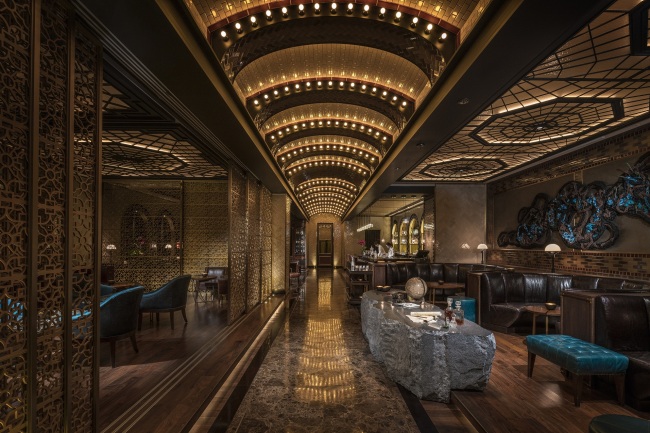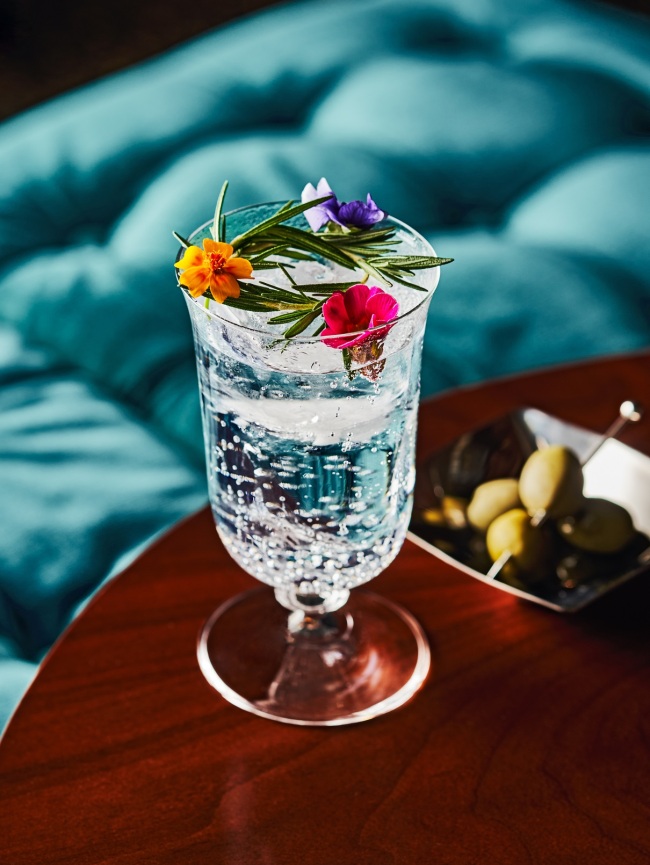When veteran bartender Keith Motsi goes to a new bar, he orders beer.
“Always, beer first,” said Motsi, the new head bartender at Charles H. in the Four Seasons Seoul. “You see what you get when you order something so simple.”
 |
Head bartender Keith Motsi (Four Seasons Seoul) |
With beer, he added, a smile and the coldest glass will do.
“If they cannot do it (right), do not bother. Just don’t go there.”
According to him, bars are not just about the drinks. They are about hospitality and making people feel good. Especially when visiting an upscale bar like Charles H., people expect more than just good drinks.
“They come for the people connection, human connection,” he said.
Born in Zimbabwe and raised in Leeds, England, Motsi is one of the newest additions to Seoul, having started his post at Charles H. in April. Before, he helped launch the 3,600-square-meter Equis bar at the Four Seasons Beijing.
 |
Charles H. (Four Seasons Seoul) |
 |
The Ms. Frida is an original Charles H. craft cocktail. (Four Seasons Seoul) |
Having worked at some of the world’s most glamorous establishments, including Soho House & Co in London, he must be used to the fancy atmosphere. Motsi keeps reminding himself, however, that drinking is a luxury.
“People always forget that cocktails are luxury. It’s not a necessity, it’s not like food. Generally most of the cities with the best bars are some of the wealthiest cites in the world. People have the disposable income,” he said.
“You always have to take perspective, working in this niche industry when some people can’t even afford water.”
Recently, the Seoul bartender scene has seen a strong wave of globalization. An increasing number of bars feature foreign bartenders. The Pussy Foot Saloon near Itaewon and Marque d’Amour in L’Escape Hotel downtown are just two examples.
“With advanced technology and easy travel access, more and more people are becoming well-traveled, so it’s important to have someone at the bar who is experienced in understanding a wide range of people,” Motsi said.
“If there is a guest who is new to Seoul or feels uncomfortable at the bar, having someone who can relate and understand puts him or her at ease,” he said.
But an even more pressing need is willingness to communicate, Motsi said. Bars have to communicate with each other to improve the industry as a whole. Though it’s a bit of a cliche, there is truth to the saying “Together we are stronger.”
“In a city, the whole sort of industry is commutative. That’s how come London will always stay a step ahead of everyone else, because if you have a day off, you will visit every single other bars in the area. It’s not a competition. It’s about how you improve each other,” he said.
“Go to Singapore, for example, when you visit a bar. It’s not just visiting one bar -- the bartenders would recommend other bars, restaurants to visit. It’s like a package. Bartenders are people who really know the city,” he said.
Though Motsi appreciates soju, distilled Korean liquor, he does not have plans to shake up any new soju-based craft cocktails at the moment. But he is aware that there is a certain demand for premium soju at high-end bars.
“Though people say soju is famous, I have never been in a bar that offers me soju. People just assume Koreans don’t want to drink soju (at a nice bar). No one has ever tried to challenge the perception,” he said.
“I don’t know soju yet. I did not make a baiju cocktail for 12 months,” he added, referring to his time working at the bar in Beijing. Baiju is a popular Chinese spirit.
“You have to respect that craftsmanship. Once I know soju, how it’s made, the flavor profile, I will work something out.”
By Im Eun-byel (
silverstar@heraldcorp.com)










![[Today’s K-pop] Blackpink’s Jennie, Lisa invited to Coachella as solo acts](http://res.heraldm.com/phpwas/restmb_idxmake.php?idx=644&simg=/content/image/2024/11/21/20241121050099_0.jpg)